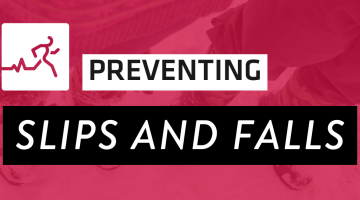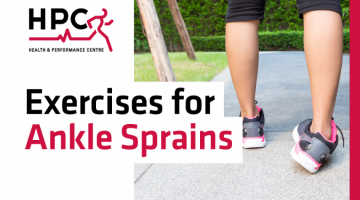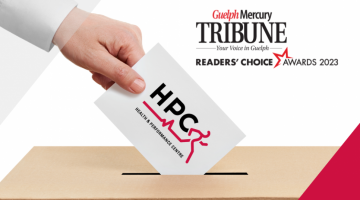What is a Concussion?

The following article was prepared by HPC Student Volunteers Fausta Ferzoco & Brittany Emary. Learn about the HPC Student Volunteer Program
Defining a Concussion
A concussion is an injury to the brain resulting from a sudden impact to the head or body. Concussions may happen because of a hit to the head, face, neck or somewhere else on the body. When a hit takes place, the brain moves back and forth inside the skull.
Common concussion symptoms include:
- Headache
- dizziness
- problems walking
- sensitivity to light
- sleep problems
- balance issues
"Red flag" concussion symptoms include:
- loss of consciousness
- repeated vomiting
- slurred speech
- neck pain or tenderness
- severe headache
If you are experiencing any of these symptoms it is important to seek immediate medical attention.
What to do if you suspect you have a concussion:
- Immediately stop all activities for 24-48 hours post-injury, including studying, working or playing sports.
- See your doctor if you are experiencing symptoms to confirm your diagnosis and rule out serious brain trauma.
- Take steps to conserve energy which will help you manage your concussion. This includes getting enough sleep, relaxing, eating the right foods (avoiding foods that cause inflammation), waking up and going to bed at the same time each day (even on weekends) and avoiding naps.
- Work with a medical professional to develop a recovery plan that is right for you.
What should be included in a recovery plan?
A typical recovery plan involves the four “P’s”. This includes prioritizing your tasks and determining what is most important and urgent based on your symptoms. This could involve planning your time and activities while considering your energy levels and when you feel the best and worst during the day. It is also important to respond to your symptoms and take breaks as needed to ensure an optimal recovery. Finally, individuals with a concussion must consider their environment and avoid busy, loud, distracting places.
How long will it take you to recover?
Typical “recovery” time can range anywhere from 1 to 4 weeks and looks different for everyone. However, recent research suggests that a longer drawn out recovery is common in adolescents with longer recovery time that requires at least 4 weeks and sometimes even months for the concussion to fully resolve.
Additional characteristics associated with a prolonged recovery include a history of depression or anxiety, an initial complaint of dizziness, and a history of prior concussion. Emerging evidence suggests adolescent females (especially athletes) are particularly more likely to require longer recovery times. Therefore, it is necessary for individuals to be aware of this when seeking concussion treatment.
In general, most people who have suffered from a concussion will fully recover and be symptom-free within 4 weeks. If you are experiencing symptoms that are lasting longer than the expected timeframe (2 weeks in adults over the age of 18, and 4 weeks in children and adolescents), talk to your doctor about treatment options. Targeted rehabilitation has been found to help people recover after having prolonged symptoms. Our team of health professionals at the HPC has extensive training in concussion management. Speak to your doctor about the treatment path that is right for you, or call the HPC to find out more about how we can help.
More information on concussions and how HPC can help
HPC Concussion-related services:
- Sport Medicine Doctors (OHIP funded)
- Physiotherapy*
- Chiropractic*
- Massage Therapy*
- Naturopathic Medicine*
(*covered by most insurance plans)
You may be interested in these 'Concussion-related Articles' → Vestibular Impacts of a Concussion / Concussion: Visual/Oculomotor / All About Whiplash
About the HPC Student Volunteer Program: Each year, approximately 30 University of Guelph students are selected following a competitive application process to take part in the “HPC Volunteer Program.” This program provides an opportunity for U of G student volunteers to translate their academic knowledge into practice, while gaining first-hand experience and mentorship from the team of certified physiotherapists and chiropractors at the University of Guelph’s Health and Performance Centre. As a result of this exceptional partnership between the University of Guelph and the HPC practitioners, students can gain valuable insight on evidence-based practice prior to graduating from their respective programs. Click here for more information on co-curricular experiential learning opportunities at the University of Guelph. The following article was written by members of the 2020-21 HPC Student Volunteer Program.



